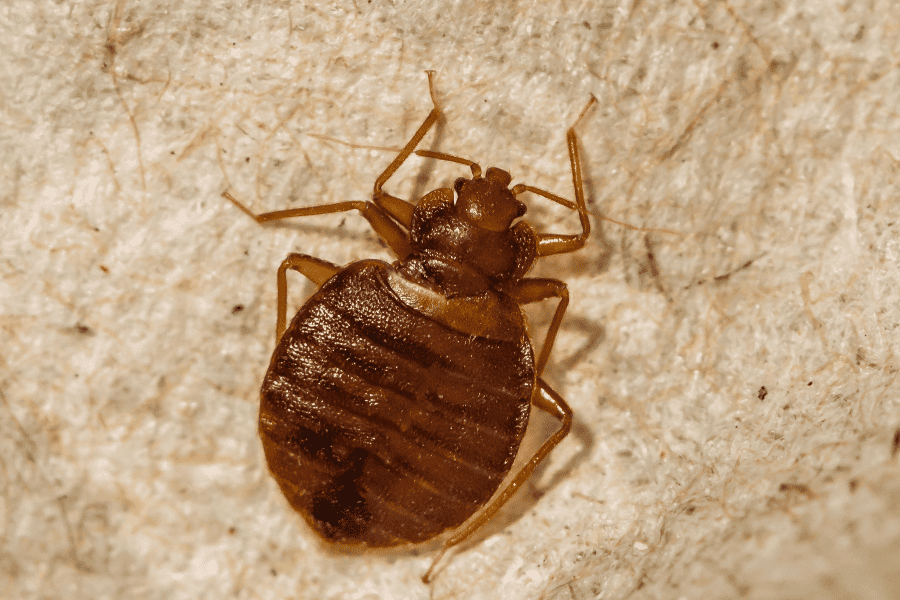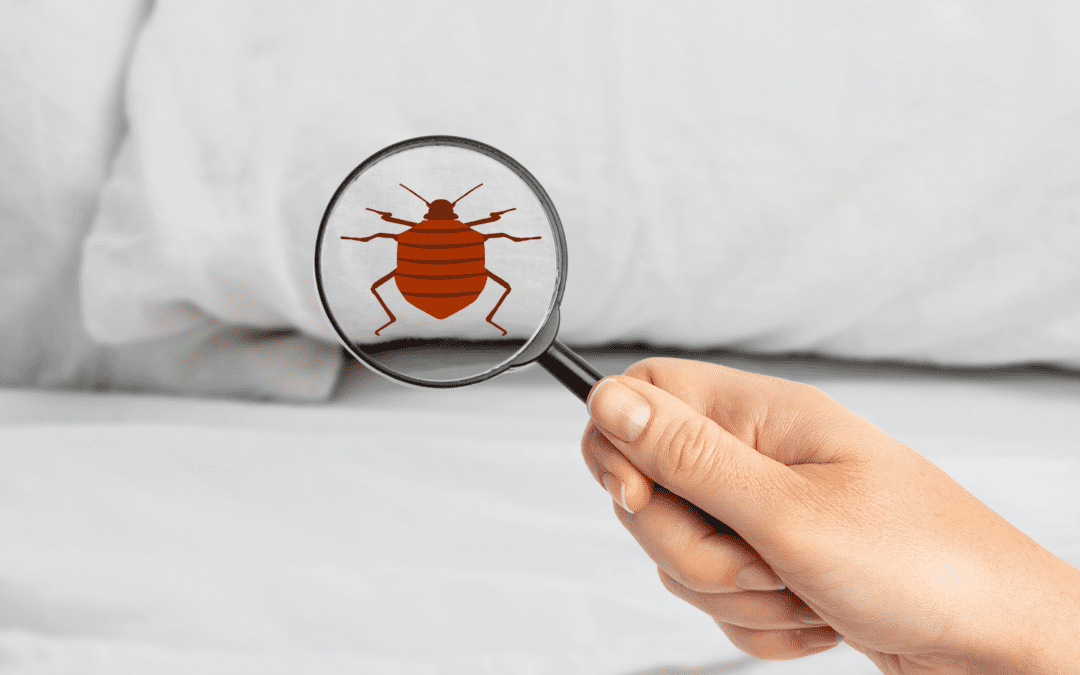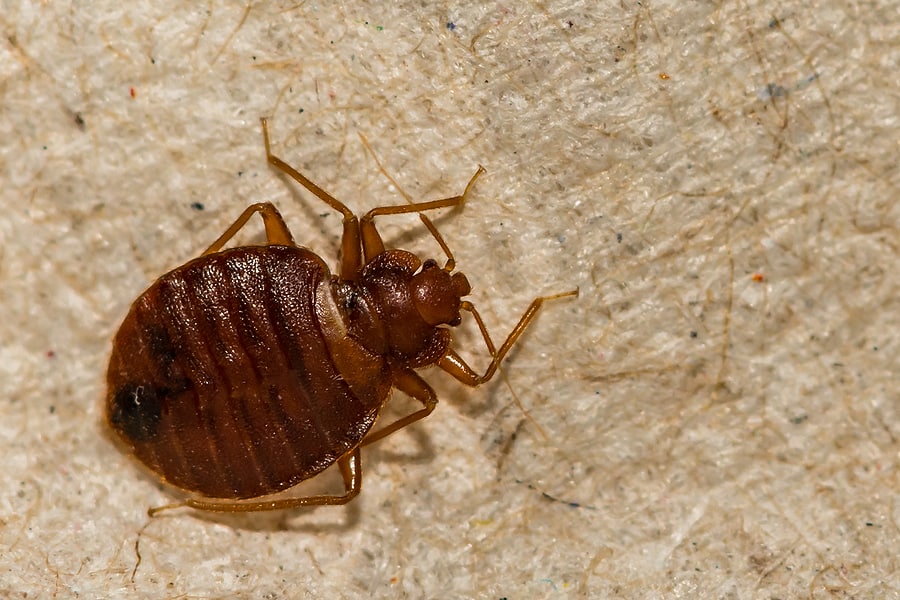READY TO GET STARTED?
REQUEST A FREE ESTIMATE
Fill out the form below or call (336) 226-1448 for a free, no-obligation estimate.

You’ve heard the saying “don’t let the bed bugs bite”, but you don’t fully understand how these bugs can truly impact your life. Most bed bugs are found in man-made structures rather than in the wild due to needing a host to survive. This is why weather has no impact on where bed bugs are located. Let’s discuss bed bug identification and how to properly handle them if you discover an infestation.
Bed bugs are small, apple seed-sized insects. They are flat and oval with horizontal ridges across their bodies. They don’t have wings but can move extremely fast. They can leave mosquito-like bites all over your body and can become an itchy problem.
Bed bugs are known as “hitchhikers”. They can easily latch onto items and travel long distances. These pests are found where humans tend to congregate and spend extended time, including public transportation, libraries, and hotel rooms. This often can make travel season the perfect time for these bugs to latch onto your travel items and follow you home. They can also enter your home through secondhand furniture, mattresses, box springs, and couches.
If you’re traveling, be cautious of the hotel room or Airbnb you’re staying in. Once you arrive at your destination, inspect places where bed bugs can hide, looking for live insects, blood stains, and eggs throughout your room.
When returning from your trip, unpack your luggage outside instead of bringing it inside. Wash your clothing right away and be sure to use the dryer. High heat will eliminate any potential hitchhikers.
If you’ve spotted signs of bed bugs or seen live bugs in your home, act fast to contact your local pest control company to get rid of them. These professionals will give your home an in-depth inspection and then implement the best treatment and bed bug control plan customized for your home.

Even though bed bugs can be removed with heat treatments, it doesn’t mean that they completely hate the heat. What it does mean is that bed bugs are still very active in the South, especially in North Carolina. When the heat is in the ‘80s and ‘90s, this increases activity for bed bugs. It’s best for every homeowner to begin preventing them now, so you can sleep soundly at night.
Bed bugs are tiny, oval, brown insects that feed on the blood of animals or humans. About the size of an apple seed, these pests are known to be passive spreaders, as they won’t spread from house to house but instead spread by hitchhiking. .
Bed bugs can enter your home undetected through luggage, clothes, used beds, used furniture, and other items. Being most active at night, that is when they will make their move to bite you and have their meal. If you discover you have bed bugs, you will need to move fast. They can produce up to 3 generations within a year, so they spread quickly.
Some ways to prevent bed bugs include:
If you believe your home has become infested with bed bugs, be sure to reach out to your local pest control company, and a technician will be able to come up with the best bed bug control solution for you.

While the holidays can be filled with fun and travelling to see family, one side effect that isn’t fun is dealing with bed bugs. Bed bugs are active all year but are more likely to infest your home after a trip. Below are a few tips to help prevent bed bugs now and throughout the year.
Inspect your hotel room or rental for signs of bed bugs before bringing your luggage inside. It’s more common for hotels to have issues with bed bugs, regardless of the price or popularity, so it’s important to check every room. Bed bugs can be found in any type of furniture in the cracks and crevices, not just beds. Make sure you check sofa cushions, chairs, behind headboards, and around mattress corners. Look for evidence of bed bugs, which will usually be very small, dark-colored stains. Another indication of bed bugs is skin shells that have been shed during their growth phases.
If any bed bugs evidence is found, request a different room or change your accommodations. If you do change rooms, make sure you are not right next door to the infested room.
More often than not, bed bugs will go unnoticed because of their small size and nocturnal behavior. Even if you inspect your room and don’t find anything, be cautious when unpacking your clothes. Do not leave your luggage lying on any furniture. After inspecting, use the luggage racks provided by most hotels.
After you’ve returned home, don’t bring your luggage directly inside. Seal them in plastic bags or containers and store them for a few weeks somewhere outside of your home. You can take further precautions by steaming or vacuuming your bags before storing them.
It’s possible to take all of these precautions and still bring bed bugs indoors. If you’re experiencing bed bug bites or are seeing evidence of bed bugs, contact a professional pest control company to assess the situation. An exterminator can determine the best bed bug control plan and provide you with recommendations to prevent further infestations.